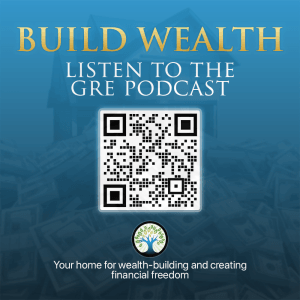Some like to say: “Housing prices don’t matter to cash flow investors.”
C’mon now.
Sure, price might not be the principal consideration. But price matters. If it didn’t, why not just pay triple the value on your next purchase?
Of course, price matters when: buying, selling, and to have an adequate equity cushion for refinancing.
Home sales dropped in July. That’s nothing new. That just means lower sales volume.
Affordability and low available housing supply are the chief culprits. Supply is still just half of what’s needed (chart) and it will be a multi-year problem.
Many believe that homebuilders are in a recession. Some are building less while they wait for affordability to improve. Sheesh, this will only prolong the supply shortage.
Since July 2019—which is before we all knew the definition of “pandemic” and only wore masks for Halloween—home prices have risen 44.5%.
Year-over-year price growth is still 10%+.
But the median sale price from June to July eased from $413,800 to $403,800 (story).
This is meaningful.
Is it an aberration or a trend to come? Of course, no one really knows. But it’s worth paying attention to.
Has the fateful time come? Did real estate prices run up too far, too fast, meaning they must come crashing down to Earth in a streaking fireball, leaving a smoking, indelible crater? Is it time to eject?
The definition of a “crash” is amorphous. Let’s equate it to a bear market, meaning a 20%+ price decline.
It’s extremely unlikely that a crash is imminent.
Housing values are famously stable. Today’s homeowners have oodles of protective equity and their loans are well underwritten.
Did you know that even during the astoundingly irresponsible and toxic Global Financial Crisis and Mortgage Meltdown of 2007-2010, house prices fell less than 20% nationally?
Those were the days of “liar loans”, 105% LTVs, loose appraisals, and a glut of housing supply.
Today, homes are still being snapped up quickly. Last month, the NAR tells us that the median home sold in just 14 days in July. It’s never been faster on record.
Demand is persistently high.
Nonetheless, the American housing market reached a turning point this summer. Price increases haven’t just slowed. Due to lower affordability, they’ve stalled.
Of course, local factors often supersede national ones.
Where are values least resilient? Metros that were trendy and higher-priced homes.
Where are values most resilient? Lower-priced and entry-level properties. They’re least affected by further losses in affordability.
Stalled price increases harm:
- Sellers. Price matters, remember?
- New owners that hoped to refinance fast.
- Flippers.
Stalled price increases help:
- Buyers.
- Rent-to-price ratios. When will rents catch up to prices? Right now.
Other companies—from Peleton to Zoom—have seen consumers end their pandemic buying patterns. So has housing.
The pandemic-era frenzy where buyers hotly demanded more space and a Zoom room is what I had called “The Great Reshuffling”. It’s settled down.
Sellers, you might even have to stage properties again.
Buyers, let’s run a vibe check. Now you can usually:
- Not have to pay all-cash
- Have less buyer competition
- Have an appraisal contingency
- Expect time for an property inspection
- Avoid an escalation clause on build-to-rents
A friend just shared with me: “We are officially back into the 2018 real estate market. I made an offer today on a brand-new flip. I got $10K of seller help and a half page of contingencies.”
Bottom line: Compared to just a few months ago, the housing market is worse for sellers and better for buyers.
Though the market hasn’t completely normalized, buyer-seller negotiations are balanced again.
Thought getting your money to work for you creates wealth? It doesn’t! That’s a myth. My one-hour investing video course is now 100% free: Real Estate Pays 5 Ways. For a limited time, you can learn how wealth is really created, here.



